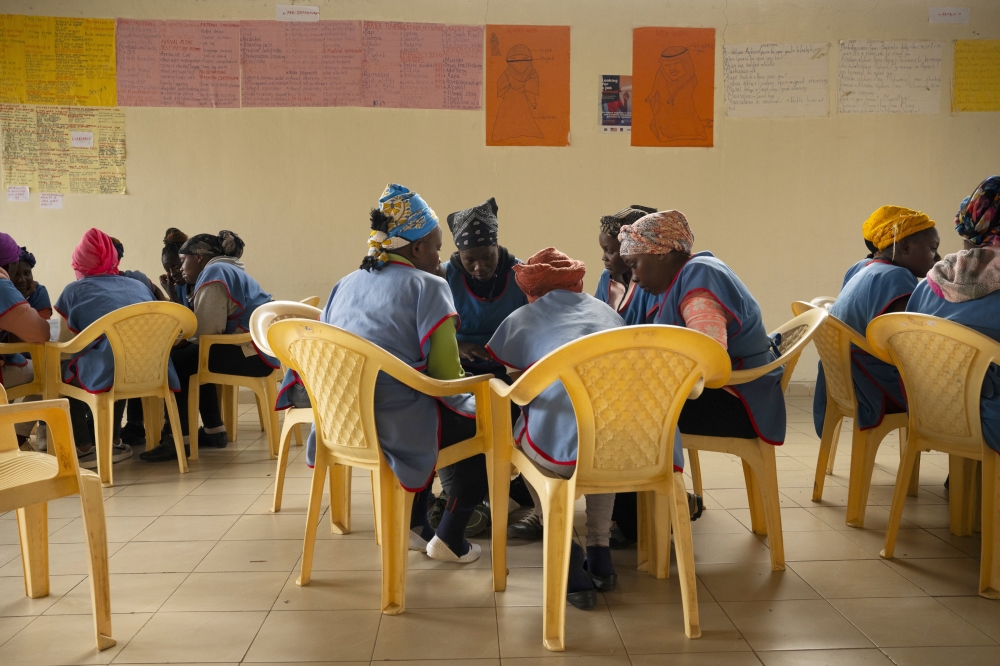Kenya’s key export, now, is its cheap labour

For years, Kenya’s most important export was coffee. Today, it is workers.
Remittances from Kenyans abroad now account for a bigger share of the Kenyan economy than coffee or tea, the country’s president, William Ruto, likes to say.
The New York Times spent over a year investigating the abuse that Kenyan housekeepers and nannies face while working in Saudi Arabia. Hundreds of women have been killed. Women describe being raped and beaten.
The two industries provide insight into how Ruto views workers. When it comes to coffee, his government is investing in the industry so its beans can be marketed and sold at a premium.
With workers, he’s doing the opposite, positioning them as among the cheapest on the market. That, we found, has contributed to the abuse.
Here’s how to understand the economics of it all.
Kenya’s Financial Crisis
Ruto was elected president in 2022 with a promise to revitalize the country’s economy. Three years later, the government is broke, debt is soaring and opportunities at home for the country’s growing youth population have not materialized.
With young people braving police bullets to protest corruption, high prices and joblessness since 2023, Ruto has become desperate for a financial fix.
He has focused on two priorities: creating jobs and generating revenue.
Labor Exports as a Fix
Sending more workers abroad creates jobs and pumps money into Kenya’s economy.
Saudi Arabia is the top market. Even low-skilled jobs there pay far more than most people can earn in rural Kenya.
Workers send much of their income home for their families to spend.
To expand that cash flow, Ruto announced a goal of sending 1 million people abroad every year, more than doubling the current rate.
That was despite well-documented risks. For years, journalists, human rights groups and unions have detailed the abuse that many workers endure in Saudi Arabia.
Low Cost, High Volume
Kenya is a relative latecomer to the Saudi foreign-worker market. Other countries, most notably the Philippines, started sending workers years earlier. To get an edge on established competitors, the Kenyan government is pursuing a discount strategy.
Saudi Arabia doesn’t have the same minimum wage for all foreign workers. Rather, it negotiates the terms of employment with governments individually.
Under Kenya’s deal with Saudi Arabia, a Kenyan household worker gets paid about 40% less than a Filipino worker doing the same job. Kenyans also have fewer resources to return home in the case of an emergency.
Ruto’s labor secretary told the Times that Kenya cannot force Saudi Arabia to change its terms. He said Kenya could not push too hard for higher wages because employers might hire cheaper workers elsewhere.
Ruto’s strategy is built on volume — sending more Kenyans abroad for less pay and without holding out for better conditions.
Preserving Profits
To hit its export goals, Ruto’s government is relying on 700 or so staffing companies that recruit employees for overseas work.
Those companies follow the low-price, high-volume strategy set by the government. They find workers and sell their contracts to Saudi agencies, which assign them to work in homes. The workers are often described as live-in maids, but they have a range of duties, including cooking and caring for children.
For every worker it sends abroad, a Kenyan company makes about $1,000. From that, companies must deduct airfare, health checks, passport fees and government-mandated training.
The government used to require a 26-day course that was supposed to teach workers how to use kitchen appliances, speak a bit of Arabic, cope in an emergency and know their rights. The program cost about $200 per worker.
Government reviews found that training inadequate, and parliament considered expanding it. But the recruiting companies complained to the government about the increased expense.
Last year, Ruto’s government said that it would require just 14 days of training. It capped the cost at around $100 per worker.
To understand what that means for a recruiting company, consider Glenn Heights, a company owned by a man who also serves as a government appointee.
In October, Glenn Heights advertised 3,000 job openings in Saudi Arabia. By halving the cost of training for each worker, the new government policy will save the company $300,000 once those jobs are filled.
A Favor to the Powerful
Lobbyists told the Times that persuading the government to change the training requirements was made easier because so many government officials and their families had stakes in the industry.
“They will help us because it is their business,” said Patrick Mburu, vice chair of the Kenya Association of Private Employment Agencies.
The Times’ investigation found that about 10% of Kenya’s labor export companies were owned by people with political connections, including the solicitor general and the government spokesperson. Lobbyists said the number was certainly higher because so many officials owned companies under other names.
Ruto’s family also profits. His wife and daughter are major shareholders in the industry’s dominant insurance company. Lobbyists say the government steers the staffing companies to buy their policies there — a claim the government denied and the company said it was unaware of.
This article originally appeared in The New York Times.



